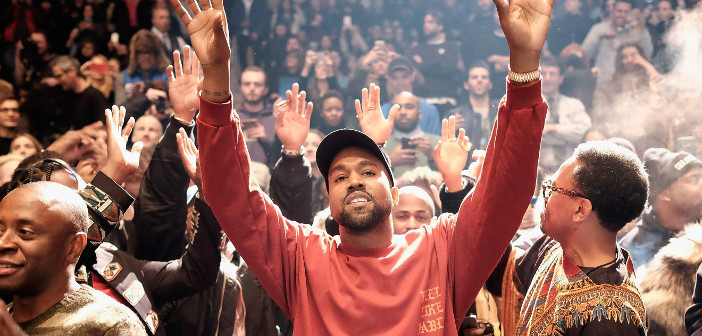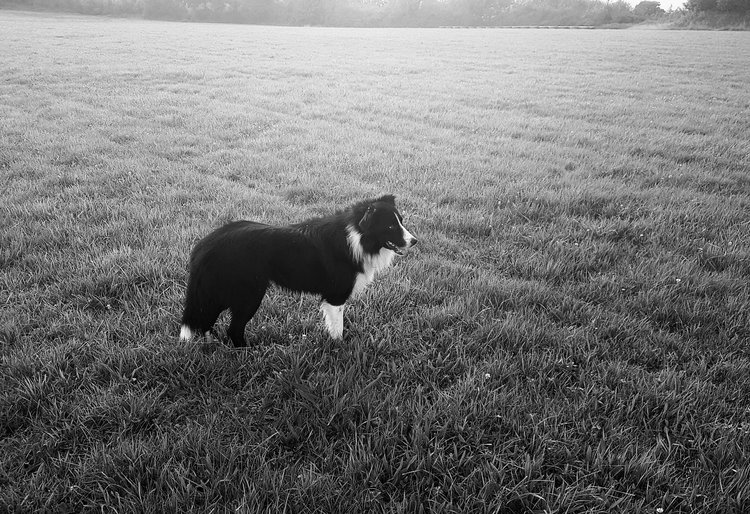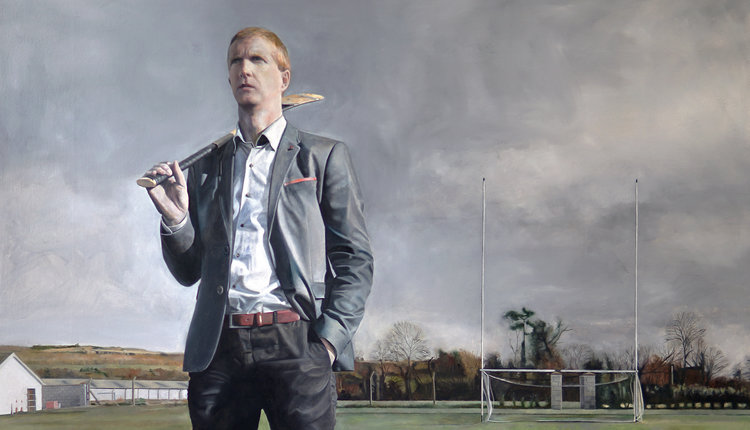Art Encounters | The Round Up
All those insecurities,
That have held me down for so long,
I can’t say I’ve found a cure for these,
But at least I know them,
So they’re not so strong,
George Michael, Waiting (Reprise).
It’s now a calendar year since I began the Art Encounters series. What began as a one off project turned into a series; a series based around exploring affects and the curiosity to understand. One article became a series and the series became a lot of things along the way. It grew in all directions. There was a point when I thought that because each article contributed a little about me each time the series added up to a kind of protracted self-portrait. In other words, each article was a brush stroke. But each brush stroke combined to become a figuration, and the figuration would become something approaching me. I had decided to write an article every two weeks about an encounter – with art as that mysterious thing that generates feelings that give rise to curiosity – and then I find each article is helping process a kind of portrait of me the writer. All that time trying to distract myself from myself was futile.
So what I was I trying to distract myself from? The fact is I started writing this series when in the depths of grief. It’s not really important who or what I was grieving, but I know I was in the thick of it. People had warned me about Xmas, how symbolic and difficult it is for those of us who have lost someone. But I didn’t get it. I thought it was just time. And then the build up to Xmas came and suddenly I got it. I was pulled into the thicket, and I could feel the intense breaching of the skin we call our emotional life. Skin had thinned to a membrane. I wrote On Driving Home with Pablo when sitting on my sofa, listening repeatedly to Chance the Rapper’s original version of Kanye’s ‘Waves‘ on YouTube, as I cried over and over again. It was a repetition compulsion, as I kept pressing repeat, and I kept crying. And then I started to write about what had brought me around to this song, and how grief had left me so susceptible to those experiences we call affects; those moments when art – in whatever form it takes – that draws emotion from us. We have to go deep into ourselves in order to get out. But we go into ourselves because we want and feel a need to preserve time: memory. We’ve experienced another’s finitude with an intensity that makes us want to understand our own finitude: our own relationship with time. We brush up against our own finitude, and we experience that authenticity Martin Heidegger associated, in perhaps the greatest philosophical treatise on time, with being-towards-death.

For Heidegger, we only really come close to experiencing an authentic sense of ourselves when in close proximity to death; those moments we accept we are going to die. I don’t claim any special purchase on authenticity, but I now think intense grieving makes us aware of things we may not have been aware of. When I began writing this series, I felt – almost intuitively – as if writing was the one of the things that could get me through, could be a way of giving shape to emotions. Neil Young’s lyric “I’m deep inside myself, but I’ll get outside somehow” from ‘Motion Pictures,’ that I wrote about in the article Life’s a Beach, was my guide. The song gave me a direction because it shows how creative work can help when in a state of mourning. Yet the lyric contains more than a hint of paradox. Young sings about having to escape into the recesses of the self in a song that is also the vehicle through which the getting out occurs. A song that deals with going into yourself, becomes, when recorded, the very process for getting out. ‘Motion Pictures,’ because it deals with immersing into yourself in order to escape the all too expedient reality of grief, has been a major motivation in writing the Art Encounters series in the last year.
It is not so strange then that the articles most people refer to as having liked are those that encapsulate this two way process most directly. The Rescue Act is a two part story about adopting a dog. It reflects on the process of adopting a dog that brought me back – via memory – to a time in my life that had seemed liked a footnote: a moment in the recent past that didn’t seem so important but was. It brought me back to almost exactly a year before when I was tasked, along with my family, with homing a pup my father had just acquired before he died. It was, in this precise sense, a poignant time. It seemed like destiny that this dog Oscar came into my life a year after; I was retrieving a life that had been given away when another was taken. The Rescue Act was about giving shelter to another being, but the writing of the piece helped me to think through what it means to care for other beings. Sometimes we need to give shelter to others in order to care for ourselves. Sometimes care offers us a way of rescuing ourselves from our own pain. When writing the piece I went back to that time before and made peace with it. I went into myself by way of getting out.

Many have asked about another piece that came about through a similar process: the two-part Where Time Becomes a Loop. The title of the article references a sample from Star Trek: The Next Generation used in the opening of the album Orbital II (the brown album). Not only is Orbital II one of my all time favourite albums, it is also an album concerned with the act of repetition. Techno, of all the modern art forms, is based on repetition and Orbital II is a landmark in the emerging artistry of techno. But neither article is in any way about techno. Looking back, both articles are about the attempt to repeat. Both are about making sense of things through the act of repetition. I wrote about going to the Sofia gallery in Madrid in 1997, and then planning to go back in 2017. And I did exactly what I planned to do. I travelled to Spain conscious of the fact that I was now with my family: I had with me the company I yearned for as a lonely twenty-four year old in 1997. Now, reflecting on the piece, when rounding up all these articles into a whole, I realise I was marking time; taking stock of what’s important. Nothing is really important unless we can take stock of what’s important.
The Iranian film director Abbas Kiarostami once described his film Close-Up as having ‘made itself.’ He was alluding to times when creative outbursts follow a logic of their own; things just seamlessly come together. It can feel as if an article, for example, exists in the aether and all we have to do is pluck it out attentively. This is what happened on certain key occasions over the course of the year. Out of the Ordinary, a piece about Gerry Davis’s Henry Shefflin portrait, passed through me as if someone else had written it and I was merely giving it form. In some ways the piece is about my memories of a time when I was carefree; those moments of craic between student and teacher that help get us through the day. I can’t really say why I think the article wrote itself, but it might be because I wrote it with a degree of affirmation: of wanting to affirm something special in time. It is as much an affirmation of the little things in life, having a genuine laugh with a student, as the little things that are celebrated in the painting itself. I was, again, going into myself in order to get out.

I began thinking about the little things in life again when deciding to call this article The Round Up. The title has been in my head for months, not ringing out but there waiting for use. The reason seemed to be that every day when walking my dog, the Border Collie I wrote about, Oscar, I recognise his instincts to herd, to bring together, to round up. And I’ve become utterly fascinated with this concept. It’s an instinct, something that he does. But it’s an instinct that got me thinking about the need to bring together, to herd and round up, just as I began writing this article. I was thinking of herding articles together; finding something common in them. When I sat down to write this piece it was the need to ‘round up’ that was on my mind. I felt the need to round up these articles so as to mark a year in time by bringing everything together. Only when doing this would I be able to take satisfaction from my own achievements.
But during of all this, I suddenly became conscious that it’s Xmas. Beyond all the madness Xmas is also about the instinct to round up friends and family, to mark time: we’re all here for another Xmas. The Art Encounters series had been initiated leading up to Xmas last year, when confronted with the void when mourning someone at this all too symbolic time of year. I had felt an instinct to round up that was impossible to enact. This year, however, I was dwelling on the term ‘round up’ when sketching out what’s common to all the articles I had written. But I now felt it was that other round up I was really concerned with: Xmas. How would I manage? Would it be as difficult as last year? I had half this article written when I ended up turning off the computer with the idea to start over. Before I knew it I was standing in the big field behind my house in the dark of winter, with Oscar, unable to see two feet in front of me. I plugged in my headphones and began walking, as an acoustic guitar began slowly humming in my ears. It was the voice of George Michael that became apparent to me as I walked into the thick of the night. He wasn’t singing ‘Last Christmas,’ thankfully. The song George Michael was singing was ‘Waiting’, the last song on the album Listen Without Prejudice Vol. 1 (a random selection from Spotify). I turned up the volume as much as I could, all the while listening to the words as if directed at me. ‘All those insecurities, that have held me down for so long,’ now echoed in my ears.
Before the song had ended, I found myself staring up at the stars in the sky, grasping my head in my hands, overcome with a sense of panic. I felt overawed and helpless, as if pulled back into a void. All I could think about was Xmas, and the sadness it might bring again. I gradually gathered myself, calming myself with the thought that the darkness itself is bringing on these thoughts, but I’ve been in it before. Then I shone my torch all around the field. ‘Oscar,’ I shouted to no reply. I suddenly became more and more panicky, fearing that he might be stuck in the thick hedges around the field. The panic got worse and worse until I suddenly heard a rustling, a movement in the grass all around, and a head appeared in the dark. His tail was wagging, and Oscar was brushing up against me as I breathed a deep sigh. ‘C’mon,’ I whispered, ‘let’s get out of the mud. There’s loads of stuff to do. And the whole gang are coming here.’
Dara would like to wish a Merry Christmas to all the readers of Art Encounters in 2017.
